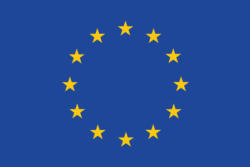
Mainstreaming sport into the European Union’s Recovery mechanism and Cohesion Policy funds
Mainstreaming sport into the European Union’s Recovery mechanism and Cohesion Policy funds
The European Union is finalising discussions and negotiations around the post-2020 long-term budget and Next Generation EU, which together currently amount to 1.8 trillion EUR- the EU’s largest financial package to date! Next Generation EU is the recovery fund to overcome the crisis sparked by COVID-19, and the Multiannual Financial Framework 2021-2027 is the EU’s long-term budget as of next January.
While the Trialogue negotiations, between European Parliament, Council of the EU, and European Commission, are entering their final stages, members of the SHARE initiative continue to emphasise the main sport-related amendments that have been discussed throughout the process. Explicit references to sport and physical activity (SPA) in the different instruments and funds are essential for two reasons. First of all, this would acknowledge the severity with which the sport sector has been hit by the ongoing sanitary crisis and its need of reconstruction. Secondly, it would further allow to embrace the sport sector as a strategic one that can contribute to a broad economic and social recovery process.

The COVID-19 outbreak has turned the world upside-down. The pandemic has not only generated an unprecedented health crisis, but also sparked societal and economic problems. In light of the crisis and of collective recovery, the European Commission proposed a comprehensive recovery package to support both the EU and Member States, and to pave the way for a more resilient future.
Sport and Citizenship, together with members of the SHARE Initiative, signed the ‘Position paper on the mainstreaming of sport in the Recovery mechanisms and Cohesion Policy funds’, to plea for the sport sector to be truly considered and included. As part of this recovery package, the paper mentions the Recovery and Resilience Facility (as the centrepiece of Next Generation EU), the REACT-EU, the EU4Health programme, and the updated Cohesion Policy 2021-2027 (in particular the European Regional Development Fund and the Cohesion Fund, INTERREG and the European Social Fund Plus) as relevant instruments that should include sport as a supported and strategic sector in the EU-wide recovery process.
Signatories plead for the sport sector to be duly recognised as a one that can help boost socio-economic recovery and growth, at local and regional level. In Europe, 5.67 million people work in the sport sector (representing 2.72% of the EU’s population). The plea also strives for the sport sector to be included in the recovery package since it is hard-hit by sanitary regulations, making it one of the most affected sectors. From grassroots to elite, and passing by amateur level, sport organisations, clubs, leagues, have suffered considerable loss of revenue due to cancelled events, lack of funds, decreasing membership, etc. This is the reason why, the sport sector must be included in the recovery package as an official domain that needs funds, but also recognition.
Together with fellow SHARE initiative members, we advocate for the sport sector to be granted the recognition and support it needs and deserves. Mainstreaming sport into these funds and mechanisms is both essential for the sector’s recovery, and invaluable ‘to build a more resilient, sustainable and healthier society capable of facing future global health and economic threats.’
PDF -“Position paper on the mainstreaming of sport in the Recovery mechanisms and Cohesion Policy funds”

